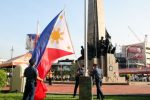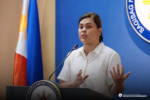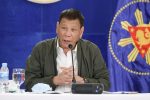QR PH to address interoperability issue in digital transactions

QR CODE PAYMENT SYSTEM. Union Bank of the Philippines executive vice president and financial inclusion executive Manuel Santiago Jr. said the central bank’s QR PH program is expected to address the issue of interoperability, a major challenge in digital financial transactions in the country. QR PH uses quick response (QR) code in a transaction and lessens the need to input transaction details of a merchant or the customer. (Photo from Unionbank)
MANILA – A financial institution executive has cited the Bangko Sentral ng Pilipinas’ (BSP) bid to address payments system interoperability, a major challenge among businesses in the Philippines, through its QR PH program.
During a virtual briefing hosted by the Economic Journalists Association of the Philippines (EJAP) on Wednesday, Union Bank of the Philippines (Unionbank) executive vice president and financial inclusion executive Manuel Santiago Jr. said while digital financial transactions surged during the pandemic businesses, especially the small ones, there are still issues with the payment systems.
He said the market “is currently fragmented” because business owners need to talk to several payment service providers.
“If you want real financial inclusion within the country, we need to be able to allow interoperability of the payments. So, meaning, that one merchant would just have to deal with one (payment service provider) and that, you know, the payments landscape is interoperable with each of the payment providers,” he said.
The Bangko Sentral ng Pilipinas (BSP) has continuously instituted ways to ease digital financial transactions in the country in line with its target to increase the share of digital payments to around 50 percent of the total by 2023, and to have around 70 percent of adult Filipinos own bank account during the same period.
Santiago said the BSP’s QR PH program, a payment system using the quick response (QR) code which was launched in November 2019 initially for person-to-person (P2P) transactions like remittances and payments, is a “great way” to address the gap.
Currently, the BSP is pilot-testing the QR PH person-to-merchant (P2M) program with several banks.
The program is targeted to be fully implemented by September this year.
“BSP is actually on the right track with the initiation of the QR PH project where all banks are required to participate. And instead of each bank having its QR Code, there will be a single QR Code that can be used and inter-operate with all the other banks,” Santiago said.
With the continued rise of digital payments in the country, Unionbank has applied for a license to operate a digital bank and its application has been granted by the BSP.
Santiago said they target to launch their digital bank in the second quarter of 2022.
Since digital banking is new in the Philippines, Santiago said competition is high but noted the huge market in the domestic economy.
“The market is large. There is a huge unbanked population and we hope to be able to extend our reach further to the markets that have not been reached today,” he added.






